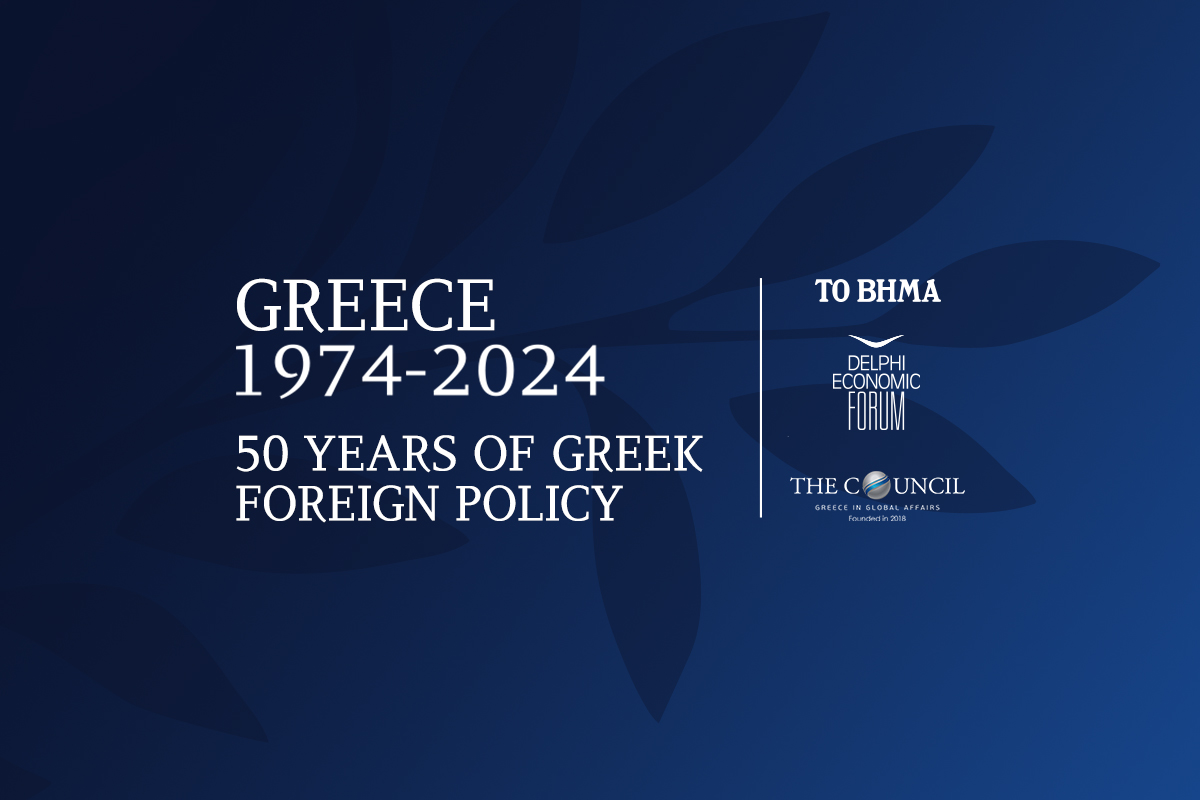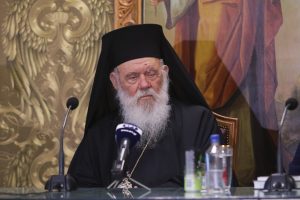Fifty years ago, Greece became a democracy once again. The end of the military dictatorship marked a seismic shift in Greek domestic politics and ushered in a sea change in the structure of the Greek state.
But the era of Metapolitefsi, which in Greek simply means “regime change”, was more than just a new head of state; it also meant a massive change in how Greece could and would comport itself on the world stage.
In the 50 years since the start of Metapolitefsi, Greece has joined the EU, navigated the Cold War and its end, struggled with ongoing questions and conflicts regarding the Cyprus issue, hosted the Olympics, suffered a debilitating economic crisis and the demands of international creditors, eventually normalized relations with the Republic of North Macedonia, and tried to take its place as a power player on the world stage.
A conference hosted by the Council of International Relations, the Delphi Economic Forum, and TO VIMA newspaper entitled “Metapolitefsi 1974-2024: 50 Years of Greek Foreign Policy”, set out to examine the issues, ideologies and lessons of this ever-shifting period.
“We wanted to take stock and reflect on these 50 years and our successes and failures, and also to look to the future, to what we can do better,” said Athanasios Platias, President of the Council for International Relations and a Professor in the Department of International and European Studies at the University of Piraeus.
“This is a historic conference,” he stated. “We have here the leaders who shaped and in fact implemented foreign policy. In terms of leadership, foreign policy, and the armed forces.”
The conference featured leading figures from the spheres of Greek politics, security, science and civil society. Speakers included the President of Greece, Katerina Sakellaropoulou, Prime Minister Kyriakos Mitsotakis and PASOK party President Nikos Androulakis. Moreover, no fewer than three former Greek prime ministers—George Papandreou, Antonis Samaras and Alexis Tsipras—spoke about the decisions they made that shaped Greek foreign policy.
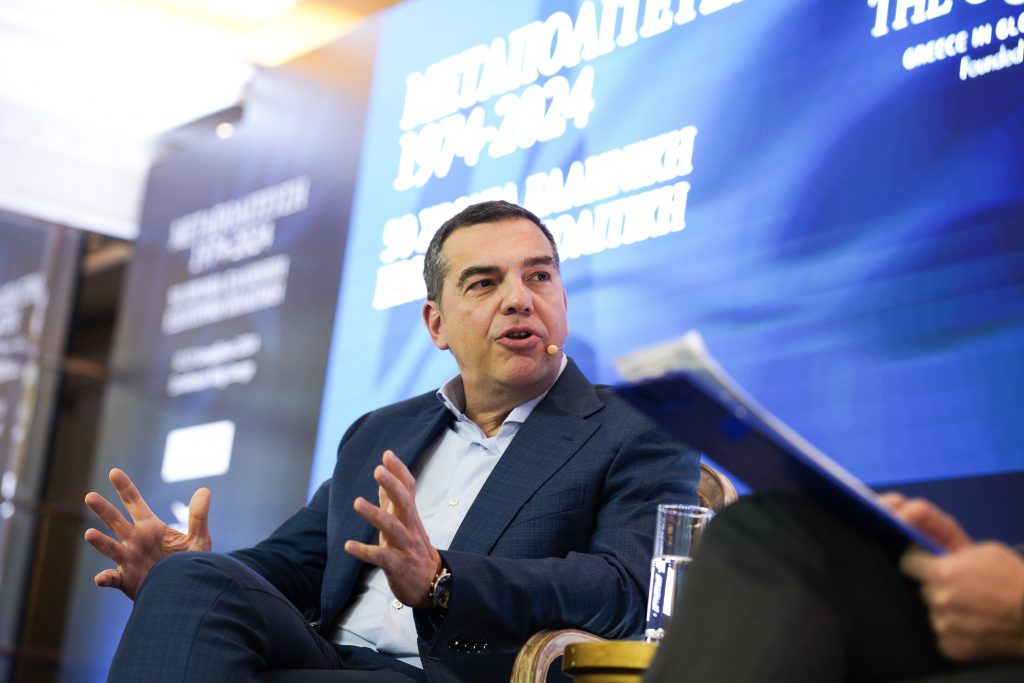
Discussion between former Prime Minister Alexis Tsipras and the director of the newspaper To Vima, Pericles Dimitropoulos, in the context of the conference “Metapolitefsi 1974-2024: 50 years of Greek foreign policy”, organized by the newspaper To Vima, the Council on International Relations and the Delphi Economic Forum, at the King George Hotel, Athens, December 13, 2024.
“In the success story that is the Greek Metapolitefsi—and I don’t think anyone can doubt that the half century since the change of regime has been just that—, I consider foreign policy to have been a success story within that success story,” said Yannis Pretenteris, TO VIMA’s Publisher, in his opening remarks. “And I think we should showcase, discuss and interpret this success story, in order to better understand what the future holds.”
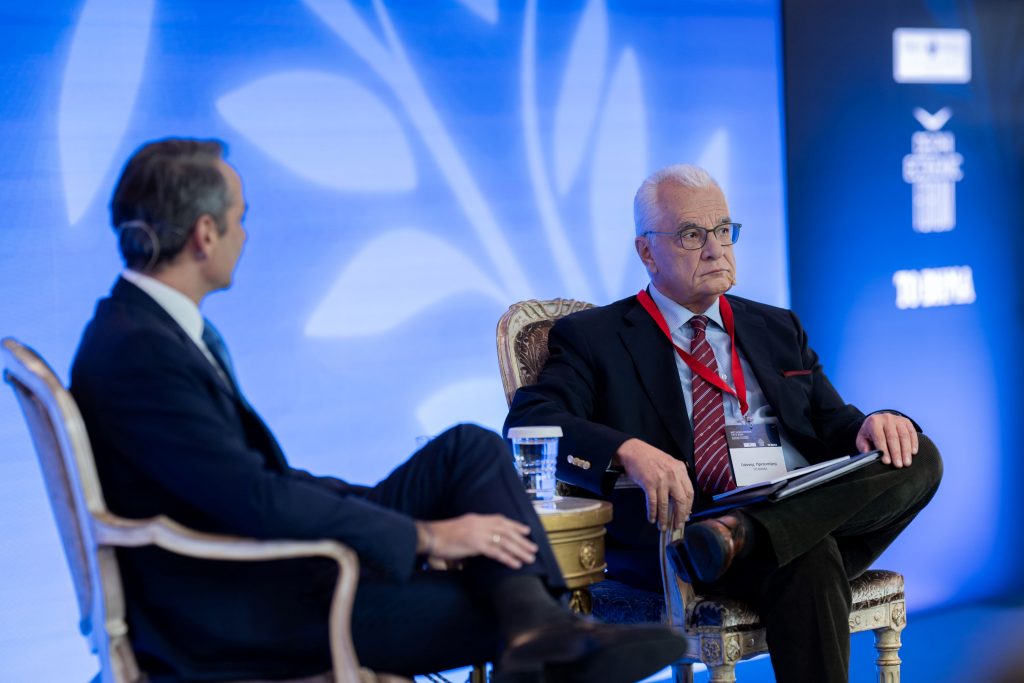
Over the course of the proceedings, particular focus was put on Greece’s unique positioning in international relations, as a member of the EU located in the Balkans and on the frontline in several crises.
“Greek foreign policy but always be on the alert. It must be creative and multifaceted and employ every means at its disposal to ensure peace and prosperity for our region,” said Symeon G. Tsomokos of the Delphi Economic Forum. “This is a geographical region with special challenges. Greece is situated at the crossroads of civilizations, between East and West on one hand and North and South on the other. Greek foreign policy has to contribute meaningfully to promoting peace, stability and security in global, European and regional development.”
Former Prime Minister George Papandreou, who served from 2009 to 2011, brought a political and historical framing to his understanding of Metapolitefsi: “For the New Democracy party, the Metapolitefsi is mainly about the restoration of democracy and Greece’s return to the European family through its accession to what was then the European Economic Community. The dictatorship is treated as a sad intermission, an unfortunate interval in the historic continuity of the country stemming primarily from internal political differences,” he said.

“PASOK adopts a different interpretation, however. In its founding Declaration, “The tragedy of Cyprus and the dangers that have arisen for the nation” are not the end of a parenthesis, but the beginning of a new struggle. The national wounds are due to the illiberal internal structures that allowed the country’s dependence on the Cold War apparatus of the United States,” he stated. “For PASOK, the Metapolitefsi marks the start of a vision to free the country from foreign influence, to deepen democracy, and allow for a more liberal society.”
Other former prime ministers discussed the political context of their terms in office and the issues that had defined foreign policy during them—whether it was complications in Greek-Turkish relations, Greece’s accession to the EU and its positioning therein, the Prespa agreement and the normalization of relations with North Macedonia, military security, or the country’s relationship with the U.S.
“The greatest and most influential achievement of our country in the Metapolitefsi era was its accession to the current European Union and, subsequently, to the Eurozone,” said President of the Hellenic Republic, Katerina Sakellaropoulou.
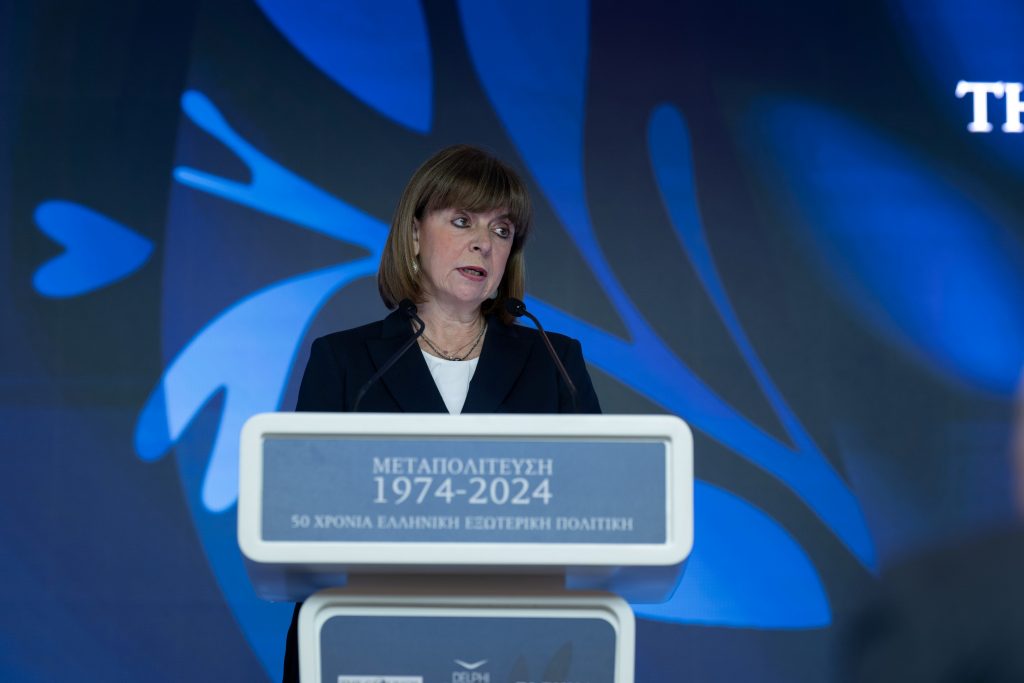
Current Prime Minister Kyriakos Mitsotakis closed the conference with a look at Greece’s vision for the next fifty years, and where he thinks the country should be headed.

